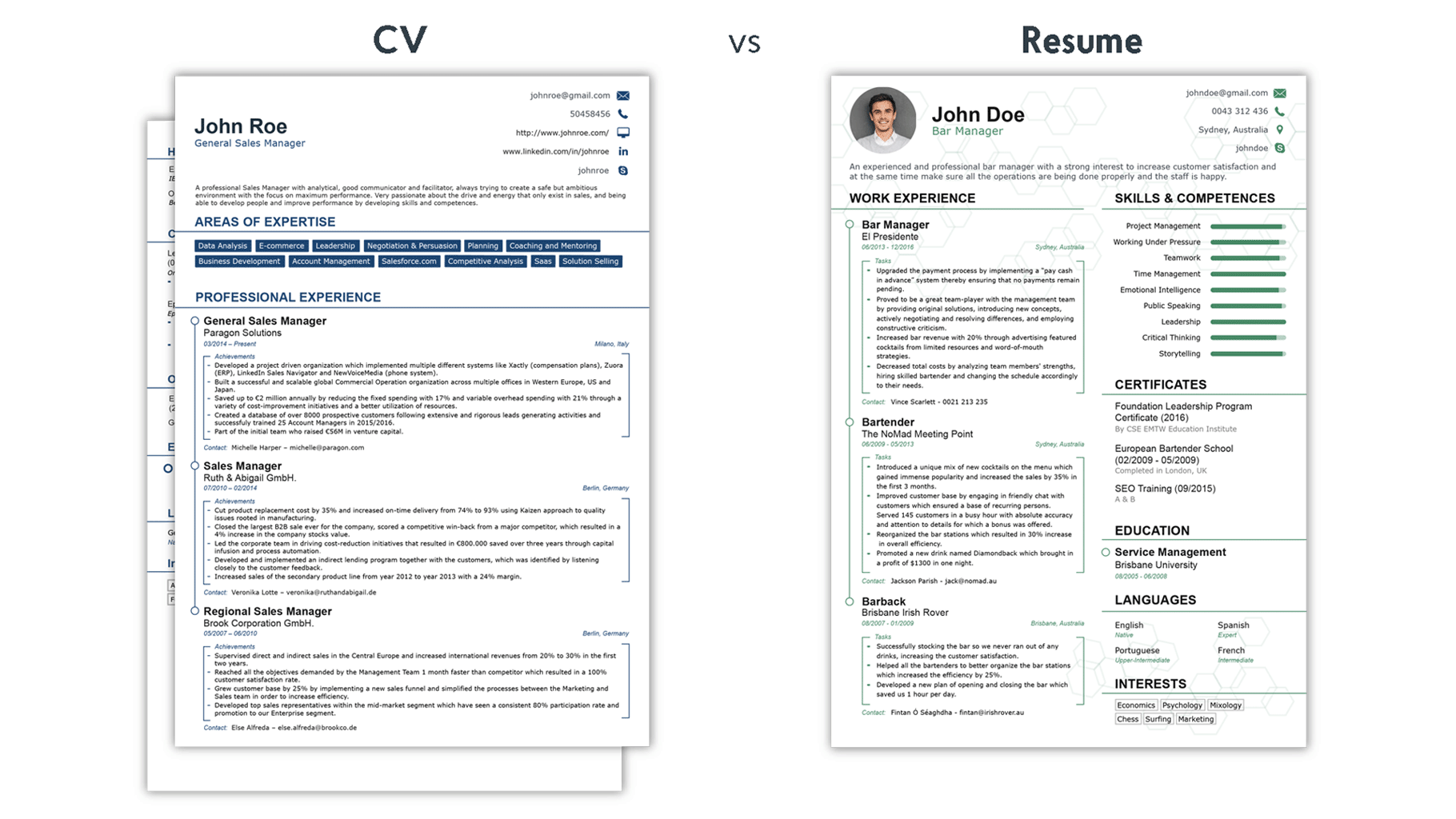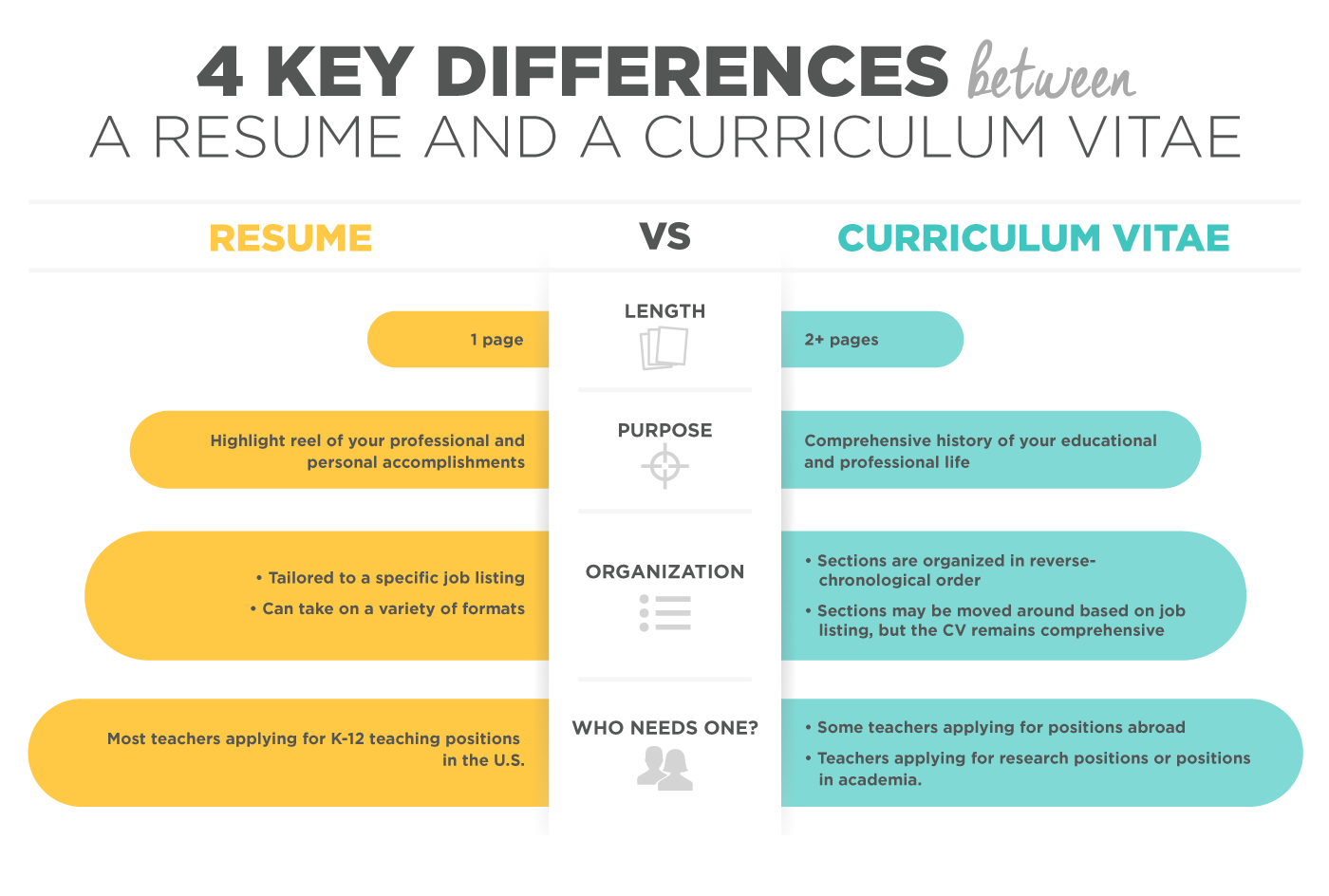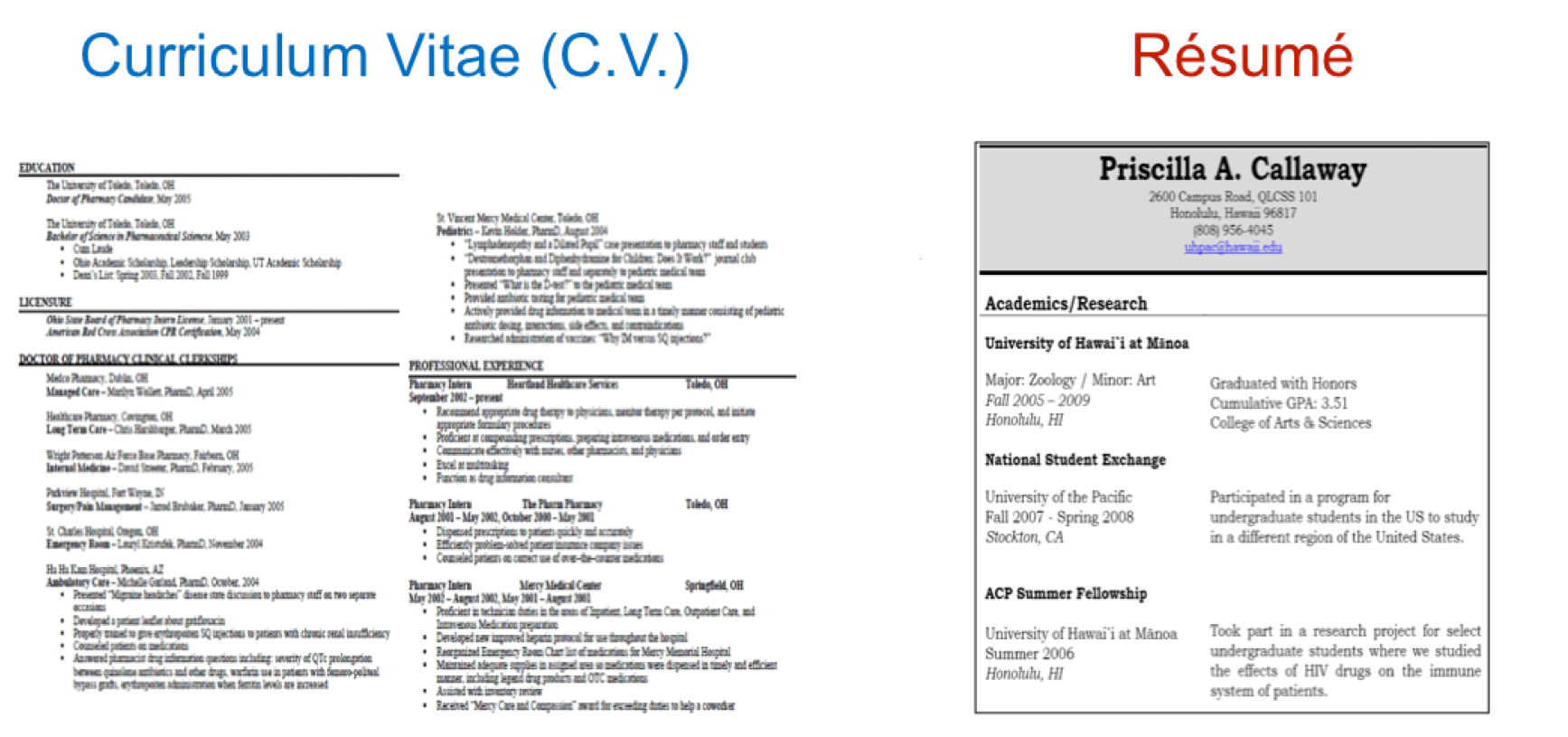How Do I Know If My Resume Is Good
6 signs of a great resume
What To Include On A Cv
Typically, youll include your career history as well as your education, awards, special honors, grants or scholarships, research or academic projects, and publications on your CV. You might also include professional references, coursework, fieldwork, descriptions of dissertations and a personal profile that lists your relevant skills and attributes.
Related: Curriculum Vitae Format Guide: Examples and Tips
The Main Difference Between A Resume And A Cv
Resumes are dynamic, concise, and targeted. CVs are static, comprehensive, and cumulative.
A good resume is a living document updated with strategic resume keywords for each unique job description. Your CV, on the other hand, may remain static and only receive updates when a new position or accomplishment needs to be added.
Read Also: How To Use Resume Template In Word 2010
How Can I Write My Biodata
Biodata Writing Tips That Every Candidate Should Know
What Is The Difference Between A Cv Vs Resume

Is a resume the same as a Curriculum Vitae or CV?
Short answer is nothey’re not the same. Each is used for applying to different types of jobs. Also, in various countries formatting and best practices differ.
What is the difference between a CV and a Resume?
A Curriculum Vitae is longer and more details than a resume. In Europe and parts of Asia, the terms resume and CV refer to the same document. Granted, the resumes or CVs they use look a tad different from what is standard in the U.S. Even in the US though, CVs are used in academia and the sciences, so in those fields they are a popular alternative to the standard resume.
CVs are multiple pages long and used to detail your entire academic and work history. Whereas, a resume is a shorter form document and used for specific job targeting. The two forms are quite unique.
In this comprehensive guide to CV vs Resume, discover more details on what a CV is and how it differs from a resume. Also, get step by step instructions on how to make a CV and customize it to your field, specialty, and country.
What’s better between a CV versus Resume? The answer lies in your goals. Your field of expertise. Also, where you’re applying. Dig into this guide to learn more.
Recommended Reading: How To Make Lines For Resume In Word
What Is The Difference Between A Cv And A Resume In The Uk And Elsewhere
In the UK and most English-speaking countries outside the Americas, the word CV is usually used to describe what Americans call a resume. Some of these countries do occasionally use the word resume, but they use it interchangeably with CV.
Some researchers have tried to spell out specific regional differences on the meaning of resume and CV in various English-speaking countries outside the Americas. Its been suggested, for instance, that the understanding of the two terms is slightly different in New Zealand than in Australia, reportedly because Australia leans more toward South Africas definitions.
The University of Western Australia offers this clarification: In Australia, resume and CV are used interchangeably. In other countries resumes and CV are different. When applying for work overseas check what is meant by a resume or CV in that country.
Beware of drawing fixed lines on what the terms mean in any country. There is enough variation in their usage that we shouldnt expect every country to have its own unique definitions. Nor should we expect every country to be internally consistent on what these definitions are.
The key takeaway here is that when most people outside the Americas say CV, theyre talking about the same thing Americans and Canadians call a resume.
And this is true whether youre in Durban, Delhi, Dublin or Denver.
For additional information on this topic, consult our guide on international writing tips for resumes and CVs.
Main Differences To Note
Ready to learn about the difference between a CV and resume? While the two documents do have a great deal in common and both are used for applications, they are not the same thing. When you’re applying for a new role, it pays to ensure that you read the posting properly. That way, you can be sure which document will be appropriate for the application. To help you know which is which, let’s take a look at four of the main differences you should know about.
Also Check: How To Build A Acting Resume With No Experience
So What Are The Differences
If youre a fact nerd like me, and you must know everything that there is to know about differences between CVs and resume, then listen up.
Curriculum Vitae is a Latin phrase that roughly translates to course of life. As such, its intended purpose is to comprehensively cover your professional achievements, work skills and academic accomplishments. Because of this, CVs can run for as long as 3-6 pages.
In contrast, a resume is a brief summary of your skills, abilities, qualification, work history and educational background. Resumes are usually 1-3 pages in length and tend to be customised to specific job ads, to ensure that they only contain information thats relevant to that position.
To illustrate my points, here are some examples of each:
By the way, youll find plenty of resume writing tips in our guides here and here.
If you prefer for a professional resume writer to take the entire task off your hands, you should learn more about our resume writing services here.
Resume And Cv Usually Mean The Exact Same Thing
In most cases, the words resume and CV are simply different terms for the exact same thing. Resume is the term commonly used in the U.S. and Canada, while curriculum vitae or CV is the term used in most of the rest of the world. But most of the time, they refer to the exact same document used in most job applications: a brief summary of a candidates employment history, educationand skills.
In other words, in most cases, CV means resume and resume means CV.
The confusing part is that the term curriculum vitae is also used in academic settings worldwide to describe the much longer document emphasizing scholarly achievements, publications, fellowships, grants, research experience and the like. This is sometimes called an academic CV to distinguish it from an ordinary CV, which is the same thing as a resume.
Also Check: How To List Gpa On Resume
How To Write A Cv
On average, recruiters receive 250 CVs for a job position. With trained eyes, hiring managers quickly scour through them for specific information thus, yours should be clear and concise. Typically credential-based, the comprehensive, multi-page document should include information on your education, achievements and work performed in chronological order.
The best CV samples contain relevant and up-to-date information such as:
Personal information and contact details
Remember to include your full name, nationality, residential address, telephone number and email address.
76% of CVs with an unprofessional email address get overlooked, so make sure to include your contact details in your job applications. Avoid including redundant information such as religious beliefs and salary history.
Education certifications and other qualifications
Starting with your latest qualification, state the institution and duration of your attendance with the month and year .
Career history
A common misconception among jobseekers is that only paid stints make the cut as valid job experiences. This cannot be further from the truth. Internships, job shadowing, part-time jobs and other forms of employment opportunities can be listed.
When it comes to describing your work experience, follow these basic rules:
Skillset
Other relevant experience, training, and references
Scholarships, awards, memberships, and other miscellaneous qualifications can be fully recorded.
What Is Personal Profile On Cv
What is a Personal Profile? Essentially, a CV profile is a personal statement, which gives the reader an idea of your personality and what makes you an individual. Emphatically, a profile is a summary of things about you which relate to your skills and qualities, but which dont constitute a mini-biography.
Don’t Miss: How To Format Acting Resume
Differences Between Resume And Cv
Differences between Resume and CV : It is often wondered, especially among job seekers, if there really is any difference between a CV and a resume. Is one just a synonym for the other and can they used interchangeably? Or do they have distinct meanings and functions? What does this mean for job seekers? Why do some job seekers make job applications using a resume and others a CV? How does one know when to use which?
It is pertinent to understand that both documents are meant for job applications, should adequately represent you as the best candidate for the job and should get you interviewed. Also, which of them youd use in your application, or whether youd even use both, depends on the company youre applying to.
The intent behind this article is to clear the air about CVs and resumes and lay the confusion to rest.
Differences between CV and resume
When To Use A Resume Or Cv

Job descriptions will typically specify whether a resume or CV is appropriate for submission. If not, there are a few factors that can help determine which document is best for the job.
Region
The use of resumes and CVs is primarily regional. Resumes are most commonly used in the U.S. and Canada . CVs are typically used internationally, particularly across Europe.
Type of Job
Even in the U.S. and Canada, there are certain professions that do require a CV in place of a resume. For example, a CV is usually used in academia by PhD candidates, university teaching applicants, and in some post-graduate application scenarios. The main use of a CV in academia is to include publication information. CVs are also common in clinical medical professions. In those cases, research and education sections are highlighted.
On the flipside, a resume will rarely be required in regions where CVs are preferred. However, if you live in the UK or Europe and are applying for a job in the U.S. or Canada, you will likely need a resume.
Because a resume and a CV serve different purposes, job seekers should consider having drafts of both written and ready to use. A CV can serve as a master resume or career management document.
Don’t Miss: Corvette Assembly Plant Tour
Difference Between Cv And Resume
Applying for that first job might be intimidating for people entering the world of professionals. A question that often pops up in the minds of job seekers is whether to go with a CV or a Resume.
Today, we will take a look at the differences between CV and Resume and help you decide which one to use in which situation. Although both the documents play different roles in different industries, it is very important to understand the nuances between the two.
How Resumes And Cvs Differ In Length Content And Purpose
The terms resume and CV are often used interchangeably, but there are important differences between the two documents that you should be aware of especially in the US market.
In Europe, a CV is generally considered to be the equivalent of a US resume.
However, in the US, CVs are much more comprehensive and can be many pages long.
In this article, we explain the key differences between a resume and a CV to help you understand which one is best suited for your professional goals.
You May Like: How To Put Community Service On Resume
Unc General Alumni Association
Do you expect to graduate in the foreseeable future? In addition to making an appointment with University Career Services before throwing your cap in the air, a visit to the Career Services branch of the UNC General Alumni Association in the George Watts Hill Alumni Center might turn into a wise career move. After graduation, members of the GAA are eligible to receive resume tips and samples, as well as to take advantage of their resume posting service.
Cv And Resume Differ Based On The Country
In different countries, a resume and a CV are different things. So what to choose â a CV or a resume? And what to include in a CV or a resume? We have researched this information and want to share it with you.
Resumes are most commonly used in the US, while in other countries, employers may ask you for a CV. Take a look at the table below and see how CV vs. resume requirements differ from country to country.
Keep in mind that the provided information is a general overview of requirements based on countries. So before submitting your resume or CV check the data and ensure to update your document according to these requirements if necessary.
| Country |
|---|
Don’t Miss: Should I Put My Photo On My Resume
Difference Between Cv Resume And Biodata
Very often when a person enters a professional career from academic life, there is a real basic need of having a resume or a CV or a biodata with him/her. And not only this, this piece of paper requires an ample amount of updations and verifications at various instances of time.
Wait! What!? Was there something above which got repeated thrice?
Was that RESUME, CV, and BIODATA?
Right! But all these three words refer to the same piece of document. Isnt it?
Well here comes a twist to your knowledge these three words may partially refer to the same piece of a document but it is not the very same thing as a whole.
So, let me first introduce you all to these terminologies, before going further.
What Is Required In A Biodata
A biodata document will include basic details such as your name, gender, date of birth, address, the names of your parents and your email address. Youll also want to include information about your hobbies, passions, what youre good at and anything else you think the employer might need to understand you as a person.
Also Check: Typing Speed On Resume Example
Do I Need A Resume Or A Cv
In the US, a resume is expected for most professional positions.
A CV is primarily requested for academic and research-related positions.
CVs are more prevalent in certain fields including:
- Academia
- Science
You likely won’t need a CV if you work in a professional business-related field.
However, we encourage you to create a similar document where you keep a detailed record of your accomplishments and projects you have worked on.
Its always helpful to have a complete picture of your experience in one document that lists all of your positions, contributions, awards, and publications in a great amount of detail.
Then, when you need to prepare a short-form resume, you can quickly pick and choose the information you need to put together tailored resumes for different positions or to help you best position yourself for a career change.
However, if youre considering going into academia, science, or a research-related field, definitely prepare a traditional CV.
Most of our clients who work in medical or scientific fields have both a traditional resume and more comprehensive CV.
Know The Differences Between A Resume And Cv

A resume is a short document of career highlights customized for each new job application. A CV is a long, in-depth breakdown of all your work, education, achievements, and projects within a specific field.
The difference is demonstrated by the word origins: The French résumé can be translated as summary while the Latin curriculum vitae means course of life. Technical differences between a resume and a CV include document length, formatting, focus, and the frequency of updates.
Also Check: Should You List High School On Resume
Whats The Difference Between A Resume And A Cv
The terms can sometimes be used interchangeably. A vast majority of the jobs out there only ask for your contact info, college degrees, work history, skills and strengths, awards and certifications, etc. This basic information is what you need to apply for any position, anywhere and you call it a resume or a CV depending on the country and the culture youre in.
But generally speaking, there are a few key differences between the two.
A resume is usually shorter and more concise . Do not include unnecessary personal information, like your age, or a picture, and do not include any work experience or other information that isnt relevant to the position you are applying for. A prospective employer will usually spend less than a minute skimming through this document, so you want to summarize everything as briefly as possible.
A CV, on the other hand, is longer and more thorough . You can include more personal information, and may even write a personal statement that shows who you are and why you are the right person for the job. You should elaborate on your academic achievements, as well as your work history and professional accolades. Play up your strengths. Be sure to include all of your work history and accomplishments, whether or not they are relevant to the job at hand. The CV should be an overview of your entire career and education. As such, it usually doesnt need to be changed much from one application to another, except possibly to emphasize different skill sets.